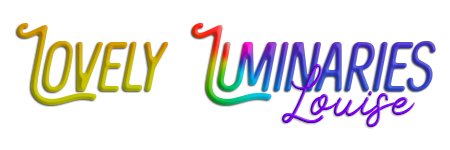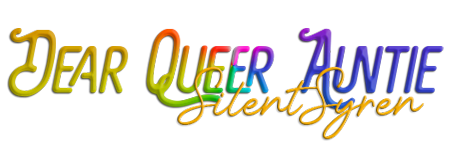Hello, hello, everyone!
Welcome to the very first edition of Luminaries! As we know, the world is filled with a lot of negativity and darkness toward the LGBTQ+ community. So, in today's little sermon is some light in that dark tunnel you might find yourself in – in hopes that it will put a little pep in your step. I'm here to make you smile, so turn your frown upside down because Louise is here for some well-deserved good news.
First up, the meme-able Nevada. Some context, if you guys didn't know already, Nevada was very controversial during the elections mostly because of the amount of time it took to decide which side they're on. But that aside, Nevada was talked about for something else. Specifically, for removing the same-sex marriage ban that was in their constitution. This has now been replaced by requirements that recognize equality for all marriages and same-sex couples under the law. Go Nevada!
Speaking of more political news, the state of Delaware in the USA has officially elected the first transgender woman into the senate, Sarah McBride. This makes her the highest-ranking transgender politician. With a focus on criminal justice reform, McBride has paved the way for members of the community to continue chasing after their dreams no matter how impossible it seems to reach. On the day of elections, she wrote on Twitter, "To anyone who worries that their truth and their dreams are mutually exclusive, know that change is possible. Know that your voice matters. Know that you can do this, too." Needless to say, Delaware – and a huge portion of America – was very proud of her.
Meanwhile, in Ohio, a proud gay father of five is beaming brightly. In early November, Robert Carter officially adopted five siblings. He and his former partner were set to adopt only the three boys but after he found out about their sisters, he did not have the heart to separate them like he was when in foster care. So, his family got bigger and his children were reunited again.
Pulling away from America, we come to Norway. This country already made history in 1981 when they banned hate speech against gay and lesbian people, but in November, they finally banned bisexual and transgender slurs. They also included the use of gender or gender identity and expression slurs to this list of possible infractions. Their Minister of Justice and Public Security said, "It is imperative that the protection against discrimination offered by the criminal legislation is adapted to the practical situations that arise." Norway is just a trailblazer for equality!
Coming back to the North Americas, a group of 100 boys turned up to their high school in Canada and made jaws drop. Due to the discriminative dress code imposed on the girls in their school, the boys came to school dressed up in skirts. It was their way of protesting the tight dress code on girls but the lax one on boys. Zachary Paulin, the organizer of the protest, posted their picture wearing skirts on Instagram saying, "...by wearing a skirt, we are united and together against the sexualization of women and we’re sending a message against toxic masculinity which keeps boys from being who they truly are, without judgment." At a young age, these boys are an idol for those wanting to do something about sexualization and toxicity among genders.
Well, that's all from me right now, my loves. Check back in on the next issue for more uplifting, happy, and all-around heart-warming news from all over the world. See you next time!
With love to all you Luminaries,
Louise

